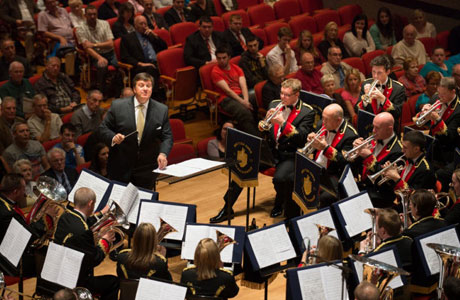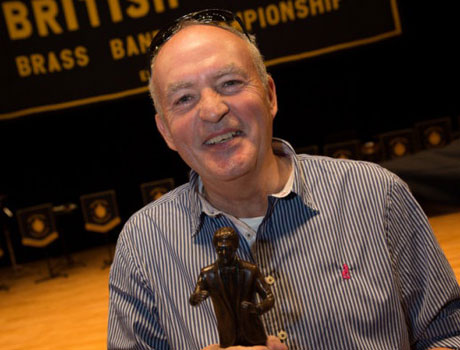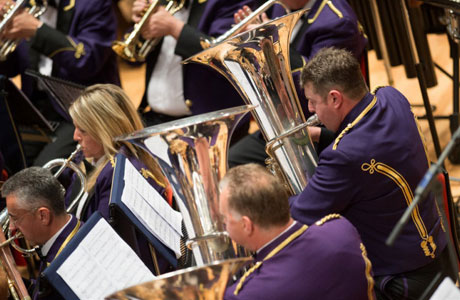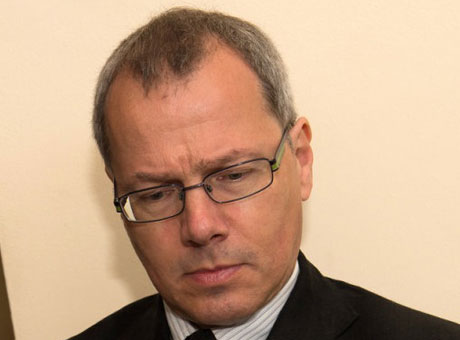
More brilliant British Open images from Goldy Solutions can be found at:
http://www.pbase.com/troonly/2012_british_open
1. Black Dyke is not unbeatable.
Despite the resurgent 2012 form, the addition of Robert Childs to the back room staff, the players, the budgets, the profile and the desire to create banding history with the biggest ‘Grand Slam’ of all time, the Queensbury band was still beaten – although only by the narrowest of margins.
That will certainly renew the confidence of the optimists in rival camps – none more so than at Foden’s and Brighouse & Rastrick, who will be looking to create their own ‘Double’ and ‘Hat trick’ entries in the record book at London.
Renewed hope too at Cory, Leyland and Fairey – all of whom will take something out of their performances at Symphony Hall.
The problem they may all face though is Black Dyke’s own determination not to end the year with a second successive defeat.
The National Finals have become unmissable.

2. Allan Withington deserves his place amongst the greats.
It may have taken him 23 attempts to finally win a British Open Mortimer Maestro Trophy, but in doing do the Norwegian based Englishman has finally secured his place amongst the pantheon of the greatest brass band conductors of the modern era.
The classiest of class acts of the banding world, he is an inventive, innovative musician blessed with a talent to bring out the very best from the bands he has under his command.
Now look at his record.
It’s living proof that nice guys deserve all the good fortune that comes their way.

3. The standard of BBb tuba playing is not as good as many people may have thought.
It’s not often that both BBb tubas in a brass band contest at this level get the opportunity to showcase their musical talents – and after the weekend you could hear why.
Leviathan sized instruments can make even the very best players sound like Louis Armstrong with a throat infection – dull toned beasts of burden, yoked to the bridle of high volume grunt, bowel shifting torque and very little else.
What ever happened to full bodied, plump sounding well rounded sounds?
The cadenzas were not that difficult, but some bands (including podium finishers) had to help their foundation layers out by employing poorly camouflaged Eb tuba help.
Time for the big lads to do a bit more practice then?

4. Full house signs
We are told by those with the rosiest of rose tinted spectacles that the British Open is always sold out and that any empty seats are either down to women wanting to go shopping or players being refused entry to the hall to listen to rival bands.
That is patently not true anymore – unless the local branch of M&S was having ‘All you can buy for a £1’ sale, or the Symphony Hall bar was starting their ‘Happy Hour’ drinks promotion at 10.30am.
Times have changed, listening habits have changed, and those people paying good money to come to the British Open have changed too.
Time then to perhaps look at a different approach: from marketing and contest rules, to the number and nationality of the bands taking part in the contest itself.
The Open is starting to have the feel of a contest that could be slowly losing audience support. It would be a sad day when it would be more appropriate to start advertising ‘Half Full’ outside the doors to Symphony Hall.

5. The return of shorter test pieces
Could we be entering a period when less is more from composers of major test pieces?
‘Electra’ brought plenty of pre-contest opprobrium from some competing bands – but come contest day, the 13 or so minutes it took to perform Martin Ellerby’s work seemed to find favour with the vast majority of players, conductors and listeners alike.
In recent years we have become accustomed to overblown test pieces that could do with losing a few pounds of misplaced musical blubber from their waistlines.
Musical obesity has become the norm at major brass band contests.
Perhaps it’s no coincidence that Martin Ellerby (above) cuts a sprightly figure – and his ‘Electra’ was a well toned, well proportioned work that managed to contain all the right ingredients in its sized 13 minute time frame.
Perhaps future contest composers would like to take note.
Their efforts would certainly be greatly appreciated by health conscious listeners.













